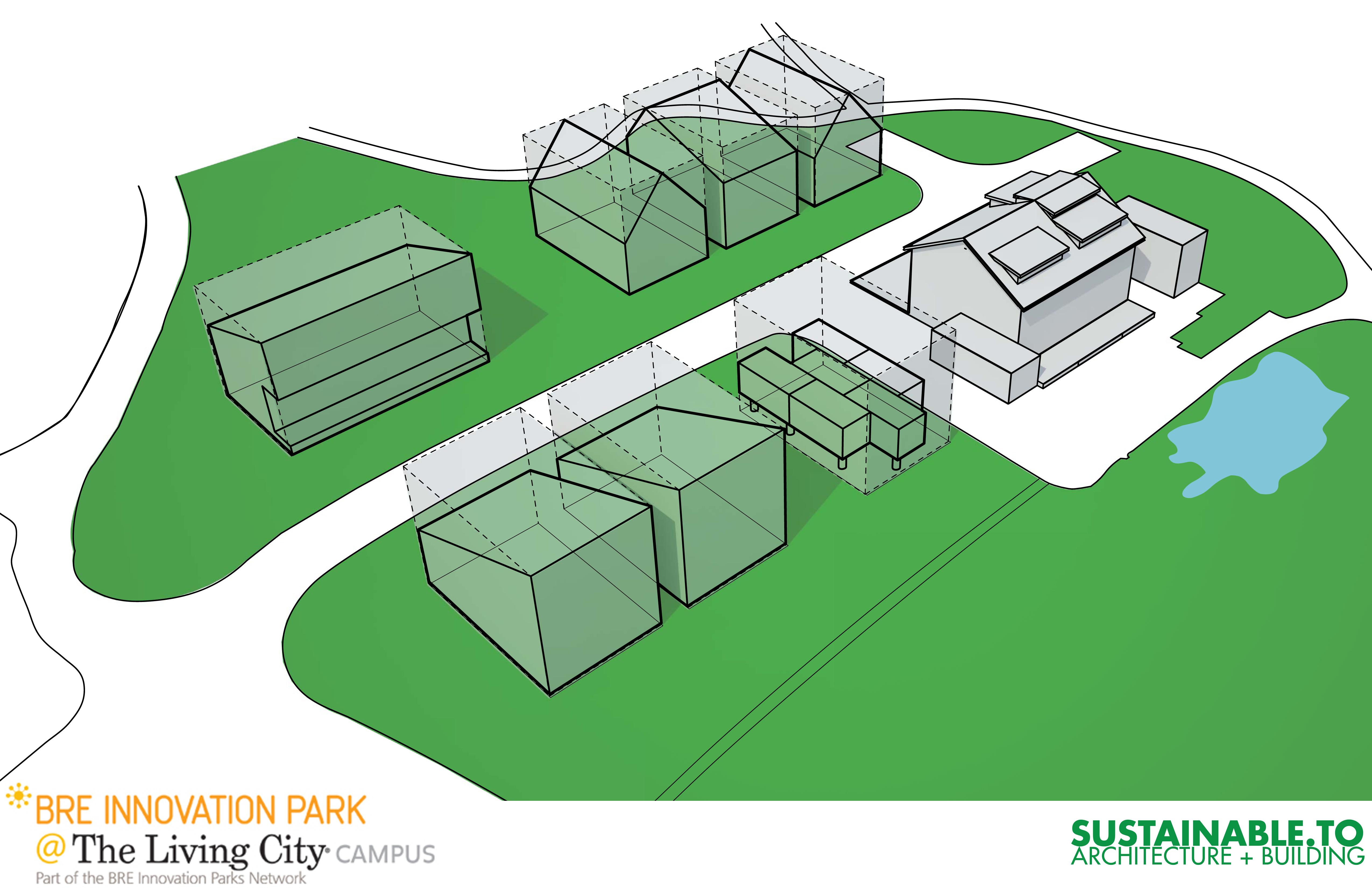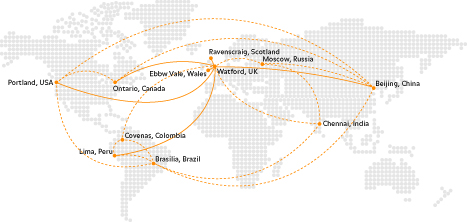
By Glenn MacMillan
Set among protected forests, fields, rivers and wetlands, Toronto and Region Conservation Authority’s (TRCA) The Living City Campus at Kortright is a centre of excellence for urban sustainability, a hub for learning, research, demonstration, and inspiration. Its unique natural setting acts as a reminder of the importance of harmony between human behaviour, technology, and nature. The Living City Campus allows visitors of all ages and backgrounds to experience sustainability solutions through real-world demonstrations. These demonstrations include permeable pavement demonstration and test sites, soil management best practice test plots, photovoltaic performance verification and wind turbine test sites, and the Power Trip Trail, a walking trail showcasing renewable energy options along its route. Perhaps the most high profile demonstration to-date is the Archetype Sustainable House, which celebrated its fifth anniversary this year. Acting as a ‘Living Laboratory”, the house showcases the best and latest sustainable building practices and technologies, and has been the focus of research for several Masters theses and PhD dissertations. The Living City Campus is also part of the Canadian ETV Program, a consortium of leading research, development and testing organizations across Canada led by Globe Performance Solutions. As the stormwater, renewable energy, and green building testing and verification centre for ETV, TRCA provides independent verification of technology performance claims so that users, developers, regulators, and other parties can make informed decisions about purchasing, applying, and regulating innovative technologies. Additional information on the Canadian ETV Program is available at www.etvcanada.ca.

The Living City Campus was borne out of TRCA’s “The Living City” vision. The vision challenges the organization and its partners to make the Greater Toronto Region one of the most sustainable, livable areas in the world. To build upon the success of the Archetype Sustainable House, accelerate the Living City vision, and elevate the Campus’s international profile, TRCA has partnered with the UK’s Building Research Establishment (BRE) to develop the BRE Innovation Park at The Living City Campus. One of the world’s largest building research, certification, and training organizations , BRE launched its “Innovation Park” concept in 2005 to assist the British construction industry in delivering new building code standards aimed at achieving net-zero carbon targets. In addition to net-zero energy and carbon, the Innovation Park demonstration buildings also feature innovative construction methods and technologies, sustainable landscape design, and also support the delivery of industry targeted education initiatives, acting as a hub for networking and knowledge exchange. Besides the first Innovation Park at Watford, four other parks are currently in the design or construction stages at Ravenscraig, Scotland; Beijing, China; Brasilia, Brazil; and Portland, USA. The BRE Innovation Park at The Living City Campus will be Canada’s Innovation Park, and along with other proposed and existing locations, will be part of the international BRE Innovation Park network.
The BRE Innovation Park at The Living City Campus aims to accelerate the commercialization and adoption of green building products and services into the Canadian mainstream and provide a vehicle for international recognition and acceptance. It will create a platform for the Canadian construction industry to demonstrate innovative solutions to achieve low carbon buildings and sustainable neighbourhood development using local skills, expertise and products.
Seven additional demonstration buildings will be constructed next to the Archetype Sustainable House. Buildings will be constructed to meet key design themes selected to suit the Canadian market: Accessibility, Assisted Living and Health; Affordable Sustainability; Climate Change Resiliency; Design for Deconstruction; Envelope First; First Nations Housing; Interactive Buildings; Low Impact Construction; Modern Methods of Construction; Net-Zero Energy; Off-Grid Design; Passive House; Refurbishment; Small-Scale Commercial; Towards 80% Energy Reduction; and Water Efficiency. In addition to meeting requirements for targeted design themes, each building will be required to meet minimum performance benchmarks set above current required levels. Minimum performance benchmarks will be set for energy, indoor water, indoor air quality, materials, and waste. Like the Archetype Sustainable House, the new demonstration buildings will feature plug-and-play and data collection capabilities to monitor, test, and verify new building products, energy system, and water reuse and treatment systems. A district energy system and smart grid demonstration project are also planned for the park.
The first Innovation Park project with be the refurbishment of an existing 1950’s residential building on the Kortright property. Targeted design themes for the refurbishment project include affordability, energy and water efficiency, climate change resiliency, accessibility, assisted living and health.
Proposed operational activities at the Innovation Park will include building and product monitoring, training and education programs aimed at public and industry, post-secondary research, events facilities, in-situ testing and evaluation, and educational and technical tours. The Innovation Park framework will foster research that will position Ontario and Canada as leaders in urban sustainability and influence future policy direction at municipal, provincial and federal levels.
All demonstration buildings and infrastructure in the Park will follow a measurement and monitoring program through design, construction, and operation phases. Research related to building process will include performance monitoring, user interactions, durability, buildability, life cycle costing, and economic analysis through design-to-operation and end-of-service life. Evaluations of construction-related risk, efficiency and improvement, and process and programming are also proposed, as well as investigations into supply chain interaction and user interaction.
The infrastructure design for the Park is currently underway and will be completed this fall. Construction of the infrastructure is anticipated to begin in Spring 2015 and the first building constructed in Fall 2015. A diverse group of build partners have been secured for all seven demonstration buildings, and design themes and performance benchmarks are currently being identified for each of the buildings. A number of local colleges and universities have also expressed interest in being involved with Innovation Park research projects, as well as including the Park in their curriculum.
Support from all industry and government sectors is crucial to the development of the BRE Innovation Park at The Living City Campus. TRCA is seeking support through cash sponsorships and in-kind contribution of services, materials, and construction labour for the development of the Park. For more information, please contact Glenn MacMillan (gmacmillan@trca.on.ca or 289-268-3901) or visit online at www.thelivingcitycampus.com/bre-innovation-park.
Glenn MacMillan is the Senior Manager of Water and Energy with the Toronto and Region Conservation Authority.